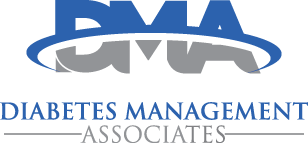Probiotics are made of good live bacteria and/or yeasts that naturally live in your gut. You constantly have both good and bad bacteria in your body. This balance of good and bad can be altered because of sickness, antibiotics, high sugar diet, uncontrolled diabetes, alcohol, and many medications including acid suppressors such as Prevacid.
What are Probiotics
Probiotics are part of a larger picture concerning bacteria and your body — your microbiome. Think of a microbiome as a diverse community of organisms, such as a forest, that work together to keep your body healthy. This community is made up of things called microbes. You have trillions of microbes on and in your body. Everyone’s microbiome is unique. No two people have the same microbial cells — even twins are different.
Where do beneficial probiotics (microbes) live in my body?
Though the most common place linked to beneficial microbes is your gut (mostly large intestines), you have several locations in and on your body that host good microbes. These locations are in contact with the “outside world” and include your:
- Gut.
- Mouth.
- Vagina.
- Urinary tract.
- Skin.
- Lungs.
How do probiotics work?
Good bacteria keep you healthy by supporting your immune function and controlling inflammation. Certain types of good bacteria can also:
- Help your body digest food.
- Keep bad bacteria from getting out of control and making you sick.
- Create vitamins.
- Help support the cells that line your gut to prevent bad bacteria that you may have consumed (through food or drinks) from entering your blood.
- Breakdown and absorb medications.
How do I keep a good balance of probiotics (microbes) in my body?
Eating a well-balanced diet rich in fiber every day helps to keep the number of good bacteria at proper levels. Fermented foods in particular (yogurt and pickles, for example) are home to a host of good bacteria that benefit your body. There are also fermented drinks like kombucha (fermented tea) or kefir (fermented dairy drink) that introduce extra probiotics into your diet. Foods such as yogurt, buttermilk, cottage cheese, tempeh, fermented pickles, sauerkraut, and sourdough bread contain probiotics.
Probiotic-supplements are a way to add good bacteria to your body.Probiotic supplements may be combined with a prebiotic. Prebiotics are complex carbohydrates that feed the microorganisms in your gut. Basically, prebiotics are the “food source” for the good bacteria. They help feed the good bacteria and keep it healthy. Prebiotics include inulin, pectin and resistant starches.When you have a supplement that combines a probiotic and prebiotic, it’s called a synbiotic.
How safe are probiotics?
Because microbes used as probiotics already exist naturally in your body, probiotic foods and supplements are generally considered safe. They may trigger allergic reactions, and may also cause mild stomach upset, diarrhea, or flatulence (passing gas) and bloating for the first few days after starting to take them.
There are certain people who need to use caution when using probiotic supplements. There is a risk of infection in some people. These people include those who have:
- A weakened immune system (those going through chemotherapy for example).
- A critical illness.
- Recently had surgery.
Do I need to take probiotics after I take antibiotics?
Antibiotic medications are often needed to fight an infection. However, while antibiotics are killing the bad bacteria, they are also knocking out the good bacteria in your body. Some people develop conditions like diarrhea after taking an antibiotic. In other people, this may allow for really bad bacteria to take over and populate the gut, such as with C. diff. Some research has shown a positive connection between taking probiotics after an antibiotic and relief from diarrhea. This hasn’t been proven yet and doesn’t work for everyone.
The thought behind adding probiotics back into your body after taking an antibiotic is that it can repopulate the good bacteria that was destroyed by the antibiotics and re-boot your system. The extra good bacteria helps repopulate your gut and fight off any remaining bad bacteria. Many people feel that adding in probiotics won’t hurt, might help you feel better a little faster and prevent diarrhea.
Vitamins and supplements should be carefully selected to guarantee quality. DO NOT take without consulting your healthcare provider.
Live Long, Live Healthy!
Dr. Julie Wood is a Nurse Practitioner and has been serving the Middle Tennessee area for more than 30 years, specializing in adults with obesity, prediabetes and diabetes. Office is located at 401 First Avenue, Mt. Pleasant, TN and statewide with telehealth. Dr. Wood can be reached at 931-325-5560, www.diabetesmgtassociates.com, [email protected].
Articles are meant to be informative and should never replace the advice of your health care provider.
7/24/22
